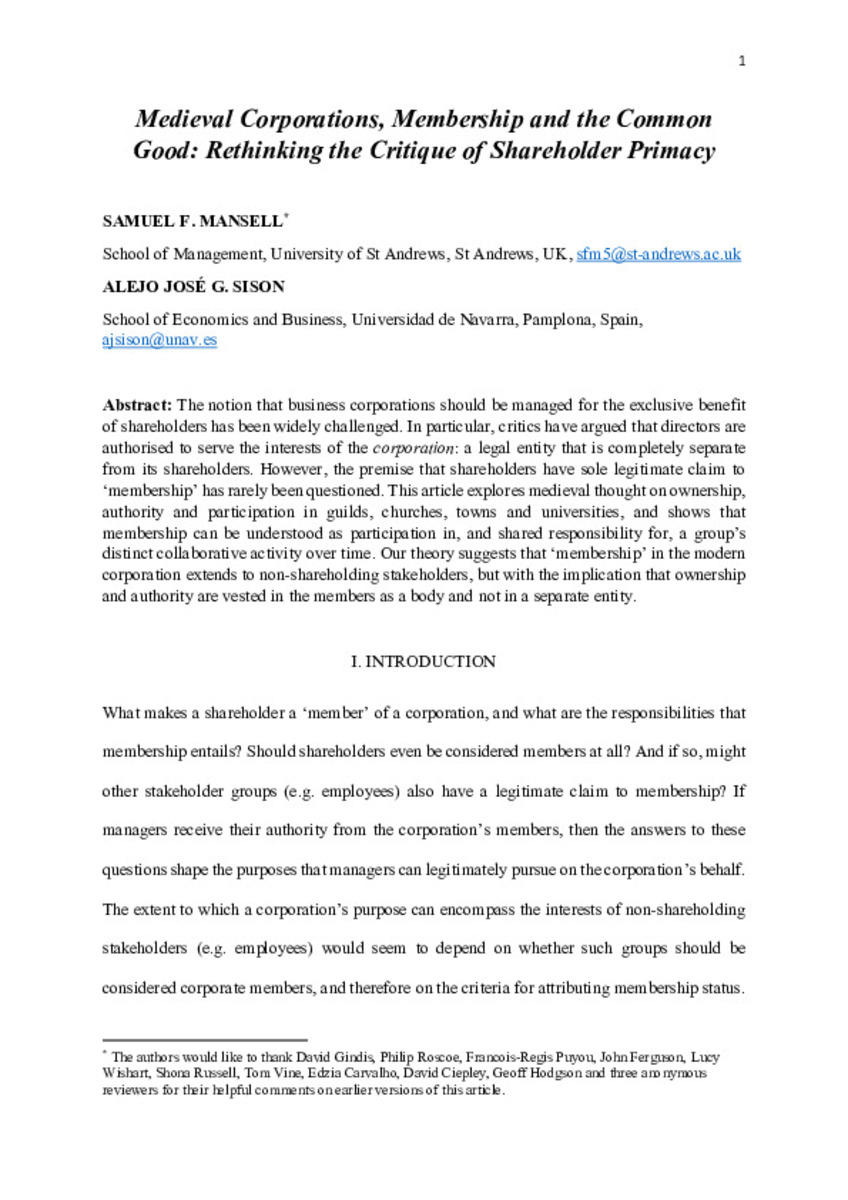Medieval corporations, membership and the common good : rethinking the critique of shareholder primacy
Palabras clave :
Membership
Shareholder
Medieval Corporations
Common Good
Fecha de publicación :
oct-2020
Cita:
Mansell , S F & Sison , A J G 2020 , ' Medieval corporations, membership and the common good : rethinking the critique of shareholder primacy ' , Journal of Institutional Economics , vol. 16 , no. 5 , pp. 579-595 . https://doi.org/10.1017/S1744137419000146
Aparece en las colecciones:
Estadísticas e impacto
0 citas en

0 citas en

Los ítems de Dadun están protegidos por copyright, con todos los derechos reservados, a menos que se indique lo contrario.








